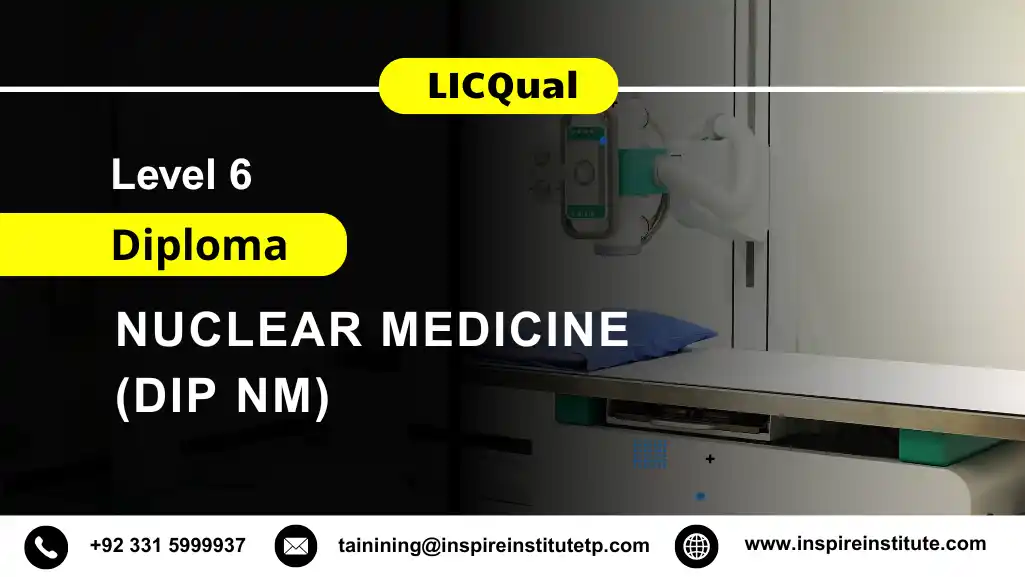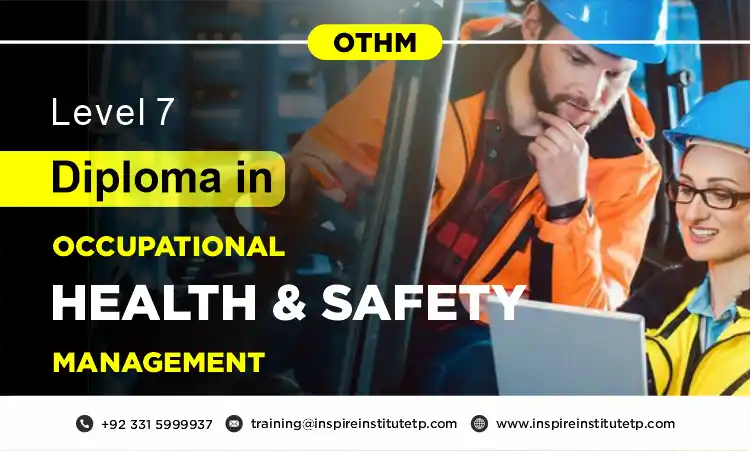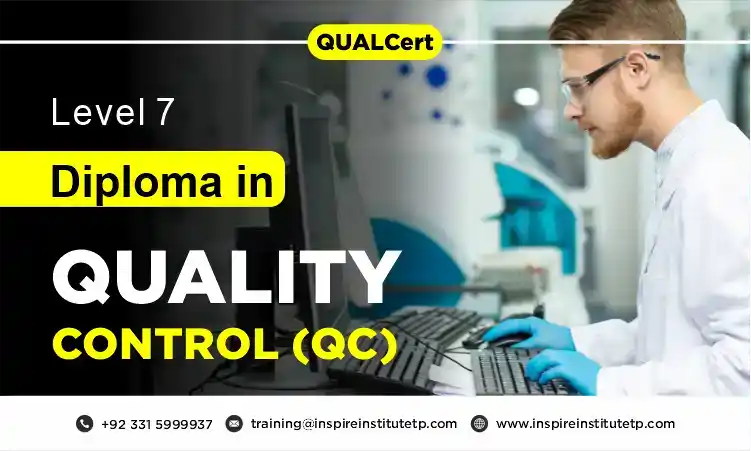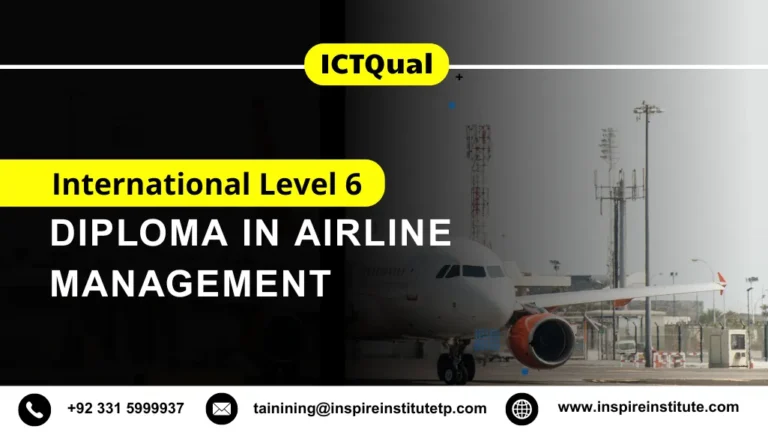LICQual Level 6 Diploma in Nuclear Medicine (Dip NM)
The LICQual Level 6 Diploma in Nuclear Medicine (Dip NM) is a prestigious UK-accredited qualification designed for medical professionals, radiologists, healthcare scientists, and aspiring nuclear medicine specialists aiming to advance their expertise in diagnostic imaging and radionuclide therapy. As medical technology continues to revolutionise healthcare, the field of nuclear medicine stands at the forefront of innovation—bridging advanced physics, chemistry, and clinical science to diagnose and treat complex diseases with precision. This diploma provides a comprehensive foundation in nuclear medicine principles, equipping learners with the knowledge and technical skills essential for modern clinical practice.
This UK-accredited Nuclear Medicine course blends theoretical learning with practical application, focusing on the safe use of radioactive materials in medical diagnostics and treatment. Learners gain an in-depth understanding of radiation physics, radiopharmaceuticals, imaging instrumentation, and clinical procedures. The programme emphasises evidence-based approaches to enhance diagnostic accuracy and ensure patient safety while adhering to international radiological protection standards.
The Diploma in Nuclear Medicine is also designed to meet global healthcare standards, ensuring international recognition and professional credibility. Graduates are prepared for advanced roles in hospitals, diagnostic centres, research laboratories, and academic institutions worldwide. The qualification enhances career progression toward positions such as Nuclear Medicine Technologist, Clinical Scientist, or Research Specialist.
The LICQual Level 6 Diploma in Nuclear Medicine (Dip NM) empowers healthcare professionals with specialised expertise, practical competence, and leadership capabilities in one of the most advanced branches of modern medicine. It not only enriches professional practice but also contributes to the global mission of improving diagnostic accuracy, patient outcomes, and healthcare innovation through safe and effective nuclear medicine applications.
Why Choose this Qualification
The LICQual Level 6 Diploma in Nuclear Medicine (Dip NM) is a UK-accredited professional qualification that empowers healthcare practitioners, radiology professionals, and medical scientists to excel in the specialised field of nuclear medicine. As medical imaging and radionuclide therapy play a crucial role in modern diagnostics and treatment, this qualification bridges scientific knowledge with clinical expertise, preparing learners to meet global healthcare standards. With its flexible, assignment-based structure, this diploma offers a comprehensive blend of theoretical and practical learning that supports professional growth, patient safety, and technological proficiency.
Key Reasons to Choose this Qualification
1. Comprehensive Understanding of Nuclear Medicine
- Gain an in-depth knowledge of radiation physics, radiopharmaceuticals, and imaging technology.
- Understand the fundamental principles of nuclear medicine, including PET, SPECT, and hybrid imaging modalities.
- Learn about radionuclide therapy techniques and their application in treating various diseases.
- Develop the ability to analyse diagnostic images with precision and clinical accuracy.
2. Practical and Clinical Application
- Engage in real-world case studies and simulation-based learning to strengthen diagnostic and therapeutic decision-making.
- Apply radiation safety principles to ensure compliance with international standards.
- Develop practical skills for handling radiopharmaceuticals safely in a clinical setting.
- Enhance technical proficiency in operating and maintaining nuclear imaging equipment.
3. Evidence-Based and Research-Oriented Learning
- Learn to critically evaluate scientific literature and apply evidence-based strategies in clinical practice.
- Participate in research-driven projects that enhance innovation in nuclear medicine.
- Develop analytical and critical thinking skills through data interpretation and case evaluations.
- Promote ethical and scientifically grounded approaches to diagnostics and patient management.
4. Global Recognition and Career Advancement
- Earn a UK-accredited qualification respected by hospitals, research institutions, and healthcare authorities worldwide.
- Increase employability and professional credibility in the field of diagnostic imaging and nuclear medicine.
- Qualify for advanced roles such as Nuclear Medicine Technologist, Clinical Scientist, or Research Specialist.
- Open pathways for higher education or postgraduate studies in medical imaging and healthcare sciences.
5. Flexible and Accessible Learning Structure
- Study through a self-paced, assignment-based format suitable for working professionals.
- Access high-quality digital materials, tutorials, and academic support from expert mentors.
- Learn anytime and anywhere through a user-friendly online platform.
- Balance academic growth with professional and personal commitments effectively.
6. Focus on Radiation Safety and Patient Care
- Master international standards of radiation protection for patients and healthcare professionals.
- Learn to develop and implement safety protocols within clinical and laboratory environments.
- Understand ethical responsibilities and legal frameworks in nuclear medicine practice.
- Enhance patient communication and ensure comfort and safety throughout diagnostic procedures.
7. Professional and Technical Skill Development
- Strengthen critical thinking, leadership, and clinical decision-making abilities.
- Build advanced communication skills for interdisciplinary collaboration in healthcare teams.
- Develop technical expertise in nuclear imaging and radionuclide handling.
- Cultivate problem-solving skills required for managing complex clinical situations.
8. Contribution to Healthcare Innovation
- Stay up to date with the latest trends, tools, and technologies in nuclear medicine.
- Promote sustainable and innovative practices that improve patient outcomes.
- Contribute to advancements in diagnostic imaging, therapeutic radiology, and medical research.
- Participate in continuous learning that supports long-term professional excellence.
The LICQual Level 6 Diploma in Nuclear Medicine (Dip NM) is more than a qualification—it is a pathway to mastery in one of the most technologically advanced areas of healthcare. By combining scientific depth with clinical application, this programme empowers learners to become skilled professionals who make a lasting impact on medical diagnostics, patient safety, and healthcare innovation worldwide. competence, and healthcare excellence globally.
Course Overview
LICQual UK Awarding Body
Average Completion Time:
6-24 Months
Study Units: 6 Units
Evidence & Assignment Based
Mandatory Units
Who Should Take This Course
The LICQual Level 6 Diploma in Nuclear Medicine (Dip NM) is a prestigious UK-accredited qualification designed for healthcare professionals, radiology practitioners, and medical scientists who aim to advance their expertise in the specialised field of nuclear medicine. This course provides a comprehensive understanding of diagnostic imaging, radionuclide therapy, and radiation safety principles essential for modern healthcare practice. It equips learners with both the theoretical foundations and the technical proficiency required to work effectively in hospitals, research facilities, and diagnostic imaging centres. Through flexible, assignment-based learning, the programme prepares participants to apply evidence-based techniques, enhance clinical accuracy, and contribute to innovation in the medical imaging field.
This course is suitable for
1. Medical and Healthcare Professionals
- Ideal for doctors, nurses, and healthcare practitioners involved in patient diagnosis and treatment planning.
- Provides essential knowledge on nuclear imaging, radiopharmaceutical handling, and radiation safety.
- Equips professionals with advanced skills in interpreting nuclear medicine images for clinical decision-making.
- Enables healthcare workers to integrate nuclear medicine techniques into broader patient care frameworks.
2. Radiology and Imaging Technologists
- Designed for radiographers and imaging technologists seeking to specialise in nuclear medicine.
- Develops expertise in operating PET, SPECT, and hybrid imaging systems with precision.
- Enhances understanding of radiopharmaceutical preparation, administration, and quality control.
- Strengthens competence in applying radiation safety protocols and ensuring regulatory compliance.
3. Medical Scientists and Researchers
- Suitable for professionals engaged in medical research and diagnostic innovation.
- Provides a foundation for conducting evidence-based studies on radionuclide therapy and imaging techniques.
- Encourages analytical thinking and data interpretation for improving diagnostic accuracy.
- Enables learners to contribute to medical advancements through research and clinical trials.
4. Biomedical and Clinical Science Graduates
- Ideal for graduates from biomedical science, biochemistry, or clinical science backgrounds.
- Offers specialised knowledge in nuclear physics, radiopharmaceutical chemistry, and imaging applications.
- Prepares graduates for roles in diagnostic laboratories, imaging centres, or research departments.
- Builds a strong scientific base for pursuing advanced studies or professional certifications in medical imaging.
5. Radiation Safety Officers and Technicians
- Beneficial for professionals responsible for managing radiation safety in healthcare facilities.
- Provides practical understanding of radiation protection principles and exposure monitoring.
- Enhances the ability to design, implement, and audit radiation safety programs.
- Develops competence in ensuring compliance with international health and safety standards.
6. Aspiring Nuclear Medicine Specialists
- Tailored for individuals seeking to build a career in nuclear medicine diagnostics and therapy.
- Develops the technical and clinical expertise needed to perform and interpret imaging studies.
- Teaches best practices for handling radioactive materials safely and effectively.
- Prepares learners for advanced professional roles in hospitals, clinics, or private healthcare institutions.
7. Healthcare Administrators and Managers
- Suitable for professionals overseeing diagnostic imaging departments or radiology services.
- Provides knowledge of nuclear medicine workflows, safety regulations, and clinical governance.
- Equips managers with tools for strategic planning and operational efficiency in imaging units.
- Supports decision-making for quality improvement, staff training, and equipment management.
8. International Medical Professionals
- Designed for globally minded practitioners seeking UK-recognised certification.
- Facilitates knowledge transfer aligned with international healthcare and radiation safety standards.
- Enhances employability in global healthcare institutions and multidisciplinary research settings.
- Provides an opportunity for career progression and academic advancement in medical imaging worldwide.
The LICQual Level 6 Diploma in Nuclear Medicine (Dip NM) is ideal for individuals dedicated to advancing their professional capabilities in diagnostic imaging and radionuclide therapy. Whether learners come from clinical, scientific, or managerial backgrounds, this qualification provides the skills, confidence, and global recognition necessary to excel in the rapidly evolving field of nuclear medicine. It empowers graduates to make meaningful contributions to patient care, clinical innovation, and healthcare excellence.
Course Benefits
The LICQual Level 6 Diploma in Nuclear Medicine (Dip NM) is a UK-accredited qualification designed for healthcare professionals, nuclear medicine technologists, and aspiring clinical leaders who aim to advance their expertise in diagnostic imaging, radionuclide therapy, and radiation safety. This assignment-based diploma integrates advanced theoretical principles with practical applications, enabling learners to assess, plan, and implement evidence-based nuclear medicine procedures effectively. Through a flexible learning structure, this course prepares medical professionals to deliver high-quality diagnostic and therapeutic services, enhance patient safety, and contribute to global innovations in nuclear medicine practice.
Key Benefits of the Course
- Specialist Knowledge:
Gain comprehensive expertise in nuclear physics, radiopharmaceutical science, and imaging technology; explore advanced diagnostic modalities such as PET, SPECT, and hybrid imaging systems; learn about radionuclide therapy applications in oncology and cardiology; understand radiation biology and patient safety principles; and master the interpretation of nuclear imaging for clinical decision-making. - Practical Application:
Develop essential hands-on skills through case-based assignments and clinical simulations; enhance competence in preparing, handling, and administering radiopharmaceuticals safely; strengthen your ability to operate nuclear imaging equipment accurately; learn to analyse and interpret imaging data effectively; and apply theoretical principles to improve diagnostic accuracy and patient care. - Recognised Qualification:
Earn a prestigious UK-accredited Diploma in Nuclear Medicine (Dip NM) recognised for clinical excellence worldwide; validate your expertise in nuclear imaging and therapy; align your qualifications with international medical and academic standards; improve your professional credibility among employers and medical boards; and enhance eligibility for advanced training or research opportunities in the field. - Flexible Learning Pathway:
Designed for busy medical professionals, this assignment-based qualification allows learners to progress at their own pace; access online study materials and structured academic support; receive personalised mentorship from experienced instructors; balance professional and academic commitments seamlessly; and benefit from a dynamic digital learning environment that promotes engagement and retention. - Evidence-Based Training:
Engage with the latest research and clinical advancements in nuclear medicine; develop the ability to critically evaluate and apply scientific evidence in diagnostic and therapeutic settings; implement best-practice radiation protection standards; participate in projects focused on improving patient safety and diagnostic quality; and strengthen analytical and problem-solving skills applicable to real-world clinical practice. - Career Development:
Unlock diverse global career opportunities in hospitals, imaging centres, research institutions, and healthcare organisations; qualify for roles such as Nuclear Medicine Technologist, Clinical Specialist, Research Scientist, or Academic Lecturer; strengthen your credentials for postgraduate or fellowship programs; gain recognition as an expert in advanced medical imaging; and position yourself for leadership roles in healthcare innovation. - Enhanced Patient Impact:
Learn to provide accurate, ethical, and patient-focused diagnostic and therapeutic care; improve treatment outcomes through precise nuclear imaging and targeted therapy techniques; ensure radiation safety for both patients and healthcare teams; contribute to early disease detection and personalised medicine; and enhance patient satisfaction through safe, effective, and compassionate practice. - Professional Growth:
Strengthen your leadership, analytical thinking, and clinical reasoning abilities; develop advanced problem-solving skills essential for high-stakes medical environments; enhance communication and teamwork within multidisciplinary healthcare teams; build confidence to manage complex imaging and therapeutic procedures; and cultivate lifelong learning habits for continuous professional advancement.
The LICQual Level 6 Diploma in Nuclear Medicine (Dip NM) is a transformative qualification that empowers healthcare professionals to master the science and practice of nuclear medicine. By combining academic depth with clinical relevance, it equips learners to excel in diagnostic imaging, radionuclide therapy, and radiation safety—driving excellence and innovation in global healthcare delivery.
Eligibility Criteria
The LICQual Level 6 Diploma in Nuclear Medicine (Dip NM) is a UK-accredited qualification designed for healthcare professionals, nuclear medicine technologists, and aspiring medical leaders who wish to advance their expertise in diagnostic imaging, radionuclide therapy, and radiation safety. This assignment-based programme combines in-depth theoretical knowledge with practical application, preparing learners to assess, plan, implement, and evaluate nuclear medicine procedures and patient care effectively within a clinical setting. Through evidence-based learning and flexible study pathways, this diploma equips professionals with the competencies required to deliver safe, precise, and high-quality nuclear medicine services across diverse healthcare environments.
Educational Background:
Applicants should hold a recognised qualification in medicine, radiography, biomedical sciences, healthcare, or a related nuclear or clinical field. A Level 5 diploma or an equivalent qualification in healthcare management, clinical sciences, or medical technology may also be accepted. Candidates with international degrees in medicine, nuclear medicine, or allied health disciplines will be assessed individually to determine eligibility and equivalence to UK standards.
Professional Experience:
A minimum of one year of experience in healthcare, medical imaging, radiology, or a related medical field is recommended. Previous exposure to nuclear medicine, diagnostic imaging, or patient care provides a strong advantage. However, motivated applicants with a keen interest in medical imaging, radiation sciences, or clinical diagnostics, even without extensive professional experience, are also encouraged to apply.
Age Requirement:
Applicants must be at least 18 years old at the time of enrolment. This ensures that learners possess the maturity, ethical awareness, and professional responsibility necessary for advanced study and clinical application in nuclear medicine.
Language Proficiency:
As the programme is delivered entirely in English, learners must demonstrate proficiency in reading, writing, and communication. For non-native English speakers, a minimum IELTS score of 6.0 or an equivalent qualification is recommended to ensure effective participation in coursework, discussions, and assessments.
Technical Requirements:
Learners must have access to a computer or laptop with a stable internet connection to participate in online classes, access digital study materials, and submit assignments. Basic computer literacy—including research, data handling, document preparation, and communication skills—is essential for successful engagement in this qualification.
Required Documents:
Applicants are required to submit the following documents during the registration process:
A valid ID card or passport for identity verification.
Academic transcripts or certificates of previous qualifications.
Proof of professional experience in healthcare, radiology, or nuclear medicine (if applicable).
The LICQual Level 6 Diploma in Nuclear Medicine (Dip NM) provides learners with the academic depth, technical proficiency, and practical insight necessary to advance in the field of nuclear medicine. It empowers healthcare professionals to deliver high-precision diagnostic imaging and therapeutic care while upholding international standards of safety, ethics, and clinical excellence.
The Qualification Process
LICQual Level 6 Diploma in Nuclear Medicine (Dip NM) follows a structured pathway to ensure learners gain comprehensive knowledge, practical skills, and professional competence in community oral healthcare.
Step 1: Self-Assessment
Learners review the entry requirements to confirm eligibility. Candidates with a background in dentistry, oral health, or public health are encouraged to apply.
Step 2: Registration
Complete the registration process by submitting required documents such as proof of qualifications, a valid ID, and payment of enrollment fees.
Step 3: Induction
An induction session is conducted to:
- Verify learner eligibility and documentation.
- Introduce study materials, learning outcomes, and assessment procedures.
Step 4: Learning and Evidence Submission
Learners complete assignments, case studies, and practical exercises demonstrating competence in public health dentistry, community oral health assessment, preventive strategies, and program planning.
Step 5: Feedback and Revision
Assessors review submitted evidence and provide constructive feedback. Learners can revise and resubmit work to meet all required standards.
Step 6: Competence Validation
Final submissions are evaluated to confirm that learners have met all theoretical and practical learning outcomes.
Step 7: Internal Quality Assurance (IQA)
The IQA team reviews the assessment process to ensure accuracy, fairness, and compliance with international standards.
Step 8: External Verification (EQA)
External verifiers validate the authenticity and quality of learner achievements.
Step 9: Certification
Upon successful verification, learners are awarded LICQual Level 6 Diploma in Nuclear Medicine (Dip NM) , demonstrating advanced proficiency in community oral healthcare and preparing them for professional growth in dental public health, preventive dentistry, and healthcare policy.







